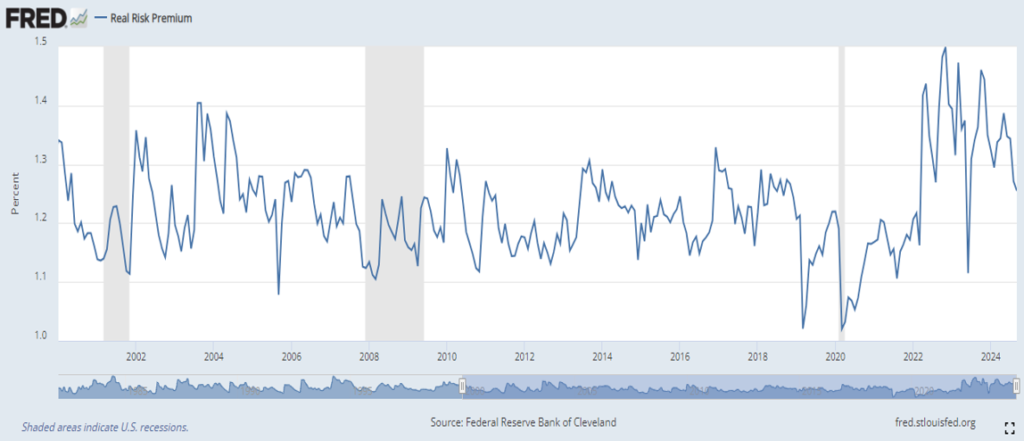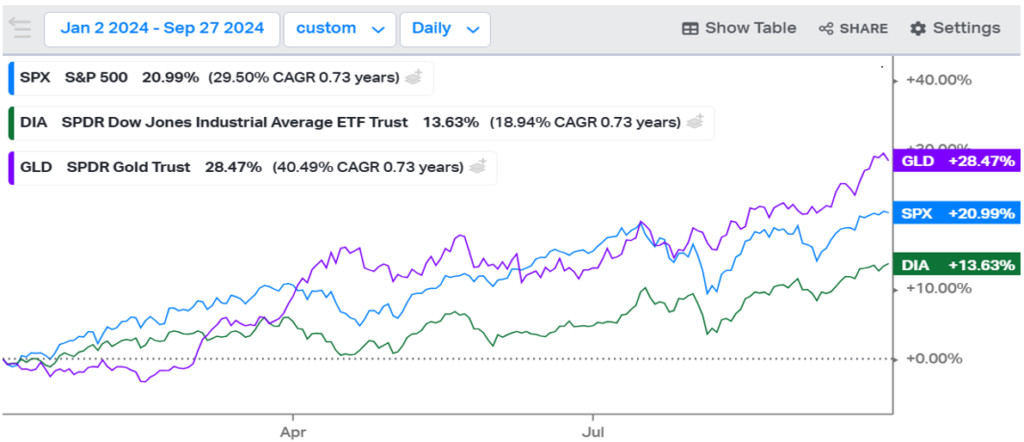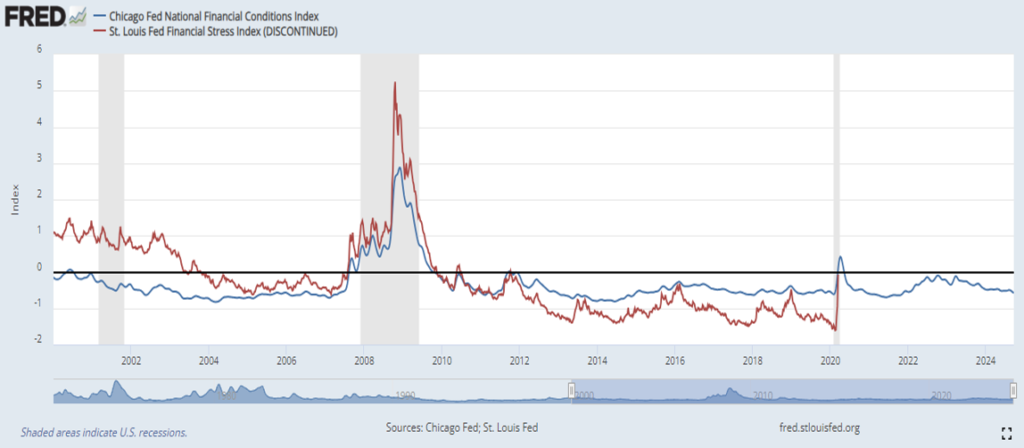Vienna in the 1920s became the center of logical empiricism, which crowned rational knowledge and scientific discoveries as the primary sources of discovering truths and advancing progress. Just in the last four weeks, the market has experimented with new highs in asset classes such as equities and gold. Furthermore, the month of September has witnessed major developments in the story that is unfolding in the Middle East with not just escalations but also with results that could crown the geopolitical theater with a jewel of unknown value (at least thus far).
We are at a historical point that leaders and “leaders” – those like or unlike Caesar – need to cry out “Alea Iacta Est” or as I prefer to translate it: “Let the die be cast, go ahead and roll it”. There are three fronts where just holding the dice will result in defeat (see brief historical reference below): Geopolitical front, market front, political front. The common factor in all three? Cast the die in the midst of turmoil.
The market front can be summarized (as the following graphs show) as follows: Equities are enjoying record highs; there is a normalization in rates with a downward trend for short-term rates and an equilibrium for long term rates between 3.65-4.00%, unless recession hits; real risk premium is declining; precious metals prices are on an upswing; financial conditions are still loose; the dollar is an a downward trajectory unless the threat of a global conflict emerges. The declining risk premium, as shown below (defined as excess return above the risk-free rate of a government bond), along with the declining rates are positive factors for gold (which is also pushed higher when geopolitical risks are rising).

The financial conditions are still loose, as shown below. The National Financial Conditions Index (NFCI) is a comprehensive index of financial conditions which includes traditional and shadow banking systems. Negative values, as shown below, indicate looser than average financial conditions which represent one of the most important explanatory factors for the record level of equity indexes.

Source: Koyfin

On the geopolitical front, and as these lines are drafted, Israel has succeeded – with tactical surgical moves of robotic quality – to inflict unprecedented damage to one of its archenemies (Hezbollah) to a possible point of paralysis. The question of course is whether that success will lead to a major war with Iran that will draw the US and others (Russia, China, N. Korea) into a direct, global, and decisive confrontation. The decapitated Hezbollah is in disarray (let’s not forget that almost its entire military leadership has been killed) and the Israeli tactical moves of the last few weeks (in phase I, we saw the killing of Fuad Shukr who was the group’s military chief, then in phase II, it detonated booby-trapped pagers, in phase III, it attacked with air strikes, and in phase IV, killed Hassan Nasrallah) reflect the reality that Israel behaves like it is in a race against time, especially if Hashem Safieddine (who is closer to Iran and who is married to the daughter of Qassem Suleimani, the Iranian general assassinated by the US in 2020) succeeds Nasrallah. Hezbollah, of course, was not just an archenemy of Israel but is responsible for a number of curses that have fallen upon Lebanon and Syria (as it gave crucial support to Bashar al-Assad’s regime along with Iran).
The events unfolding in the Middle East since July 30th (the day that Fuad Shukr was assassinated) have been reshaping Iran’s security policy. It’s a Rubicon factor in the theater of global geopolitical tensions that could reshape the Middle East. The decapitation of Iran’s most powerful militia could force Iran to push for nuclear weapons or could force its hand (given the economic conditions) towards a path of reform. An illusion (Nasrallah’s dogma of an “axis of resistance”) seems to be moving off the stage in Iran and the question of replacement with realism or a delusion needs to be made.
On the political front, and again as these lines are being drafted, Vienna and the whole country sent a controversial message – continuing the path that the Netherlands, Italy, France, and Germany prepared – to not just Austria and Europe, but to the world. The Freedom Party (analysts classify it as a far-right party) won the election and is seeking to form a government. The European voters seem to be choosing, in the countries mentioned a couple of lines above, political parties that defy the traditional parties, either because those traditional parties represent a failing elite, or because their conditions reflect a reality of abandonment of the middle class which is the most fundamental factor for the creation and sustainment of democracy. Delusions can easily replace illusions and betrayed promises, let alone policies that advance the interests of the few at the expense of the many. November 5th in the US might be another Rubicon factor in the theater that some call a theater of the absurd and others the theater of lamentation.
“You gotta serve somebody” Bob Dylan proclaimed in 1979 in his album titled Slow Train Coming.
The Rubicon River divided northern Italy from Rome. Julius Caesar dominated in that region. The Roman Republic was on a downward path of decay. It was a Republic where three leaders were competing for power: Pompey in Rome, Julius Caesar in Gaul and the Adriatic, and Crassus in the East. When Crassus was defeated by the Parthians and lost Syria, his downfall left only Pompey and Caesar to compete for power. Caesar was observing the decay that was crowning the days of the Republic as corruption, misgovernment, and incompetence marked the everyday experience of the Republic. The few tycoons (aka equites or knights) had grown enormously powerful on the profits derived from military and government contracts. Most of the Roman citizens along with the peasantry – those who had made Rome what it was – were oppressed and dispossessed by a system that kept shrinking their status. The turmoil that was emerging out of that oppression endangered the Republic, as barbarians were awaiting at the gates and at every frontier.
As Caesar was about to resign his post and become a consul, he demanded equal treatment with his archenemy, Pompey. Pompey manipulated the Senate and Caesar had to make a decision: Either to cross the Rubicon (in defiance of the law and the rules) with his 6,000-man army or give up his post and be abandoned at the mercy of Pompey who was the maestro of the corrupt forces that were destroying the Republic. Crossing the Rubicon meant civil war. As he approached the Rubicon River, his biographers (Plutarch and Suetonius) tell us of a leader whose “mind wavered”, a leader who “became full of thought”, a leader who “began to go more slowly and then ordered a halt”, a leader who stood on the bank of the river “for a long time…weighed matters up silently in his mind, irresolute between …two alternatives.”
Crossing meant a tragic unfolding civil war. Inaction would have meant the end of an era as corruption, misgovernance, and incompetence would reign supreme, as a state marked by those characteristics cannot endure for long. Suetonius tells the story of a shepherd pipe that captivated the soldiers’ interest. Suddenly that shepherd seized a trumpet and ran to the Rubicon River with it. When the shepherd sounded the trumpet, Caesar called out: “Let us accept this as a sign from the gods, and follow where they beckon, in vengeance of our double-dealing enemies. Alea iacta est!” With that exclamation, Julius Caesar crossed the Rubicon and would turn the page of history. The Republic will soon become an empire whose fate will extend for another five centuries, and some would say for another 15 centuries as the East Roman Empire will be metamorphosized into the Byzantine Empire.
The Scottish philosopher-historian Thomas Carlyle teaches us that history is more or less the biography of great individuals (The 20th century theory that history is the sum total of mass movements and social forces while holding some water, cannot explain historical events of previous centuries while historical moments led by mass movements and social forces more often than not fail unless a leader emerges).
An epoch is unfolding and a Rubicon factor is at play. Holding the dice leads nowhere. Pompey had the law on his side, and Caesar had a decision to make. Bob Dylan in that same album (Slow Train Coming) warns us in the song titled “When you gonna wake Up”:
“You got some big dreams baby, but in order to dream you gotta still be asleep…
When you gonna wake up, when you gonna wake up…
Counterfeited philosophies have polluted all of your thoughts
Karl Marx has got ya by the throat, Henry Kissinger’s got you tied up in knots…
Adulterers in churches and pornography in the schools
You got gangsters in power and lawbreakers making rules…
Do you ever wonder just what God requires?
You think He’s just an errand boy to satisfy your wandering desires…
You can’t take it with you and you know that it’s too worthless to be sold
They tell you, ‘Time is money’ as if your life was worth its weight in gold…
When you gonna wake up, when you gonna wake up
When you gonna wake up and strengthen the things that remain?”
